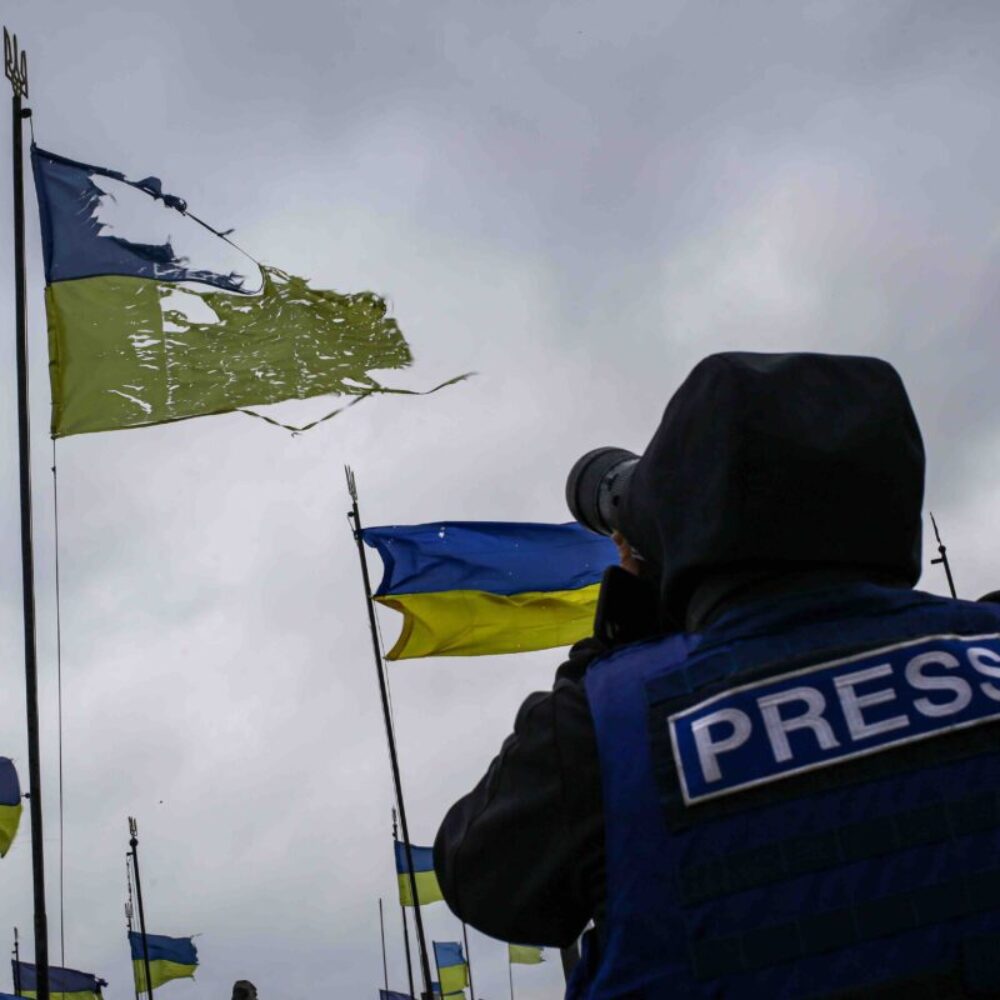1 MARCH 2023, LONDON/KYIV – Today, the Justice for Journalists Foundation and the Foreign Policy Centre organised webinar Ukraine: Media freedom, disinformation and the effectiveness of calls for redress. Recording of the event is available via the link below.
The National Union of Journalists of Ukraine and Justice for Journalists Foundation presented the main findings of their annual Report covering attacks against media in Ukraine. The report will be available on JFJ’s website next week.
Following the full-scale Russian invasion of Ukraine, at least 47 media workers have been killed:
- Eight perished as a result of enemy fire while carrying out their professional duties: Frédéric Leclerc-Imhoff, Mantas Kvedaravicius, Pierre Zakrzewski, Brent Renaud, Oksana Baulina, Oleksandra Kuvshynova, Maks Levin and Yevhenii Sakun.
- At least four media workers were tortured and murdered by the invaders on the temporality-occupied territories: Yevhenii Bal, Zoreslav Zamoyski, Roman Nezhyborets and Ihor Gudenko.
At least 36 media workers were injured during the attacks by the Russian military.
During the Russo-Ukrainian war, people and vehicles carrying PRESS signs become the specific targets of artillery fire. Moreover, Russian rockets and bombs specifically target the editorial offices, telecommunication, radio and TV infrastructure and equipment. Several objects of such type have been subjected to multiple bombings.
Ukrainian journalists have been put under an unprecedented pressure by the invaders on the temporarily occupied territories. At least 14 media workers were kidnapped and subjected to unbearable physical and psychological pressure with the purpose of forcing them to collaborate with the temporary Russian authorities. Even when a journalist manages to leave the occupied territory, their relatives often fall victim of blackmailing tactics. For example, the 75-year-old father of RIA Melitopol’s editor-in-chief Svetlana Zalizetskaya was kidnapped and only released after the journalist gave up access data to her media while all the equipment was stolen from outlet’s offices.
The invaders seize the offices, property, printing, transmission and computer equipment of Ukrainian media on the occupied territories in order to use the trusted brands for the purposes of Russian propaganda. This enables the Russians to quickly create fake versions of respected media with the help of local collaborators and imported Russian professionals. When the occupying forces retreat, they steal and destroy all the equipment and property of the media outlets.
As a result of carpet artillery attacks, many journalists have lost their homes and property. They have been forced to relocate and seek refuge in other parts of Ukraine and abroad.
In 2022 at least 43 cyber and DDOS attacks against Ukrainian media were synchronised with the military actions by the Russian occupants, which makes them the likely initiators of such attacks.
According to Sergiy Tomilenko, President of NUJU, “In addition to the horrors of war, due to unprecedent economic pressure, nearly a third of Ukrainian media outlets had to seize their operations. This worrying trend is continuing both on the Ukraine-controlled and temporarily occupied territories. The media that manage to continue their work are under constant threat of closure due to lack of financial inflows”.
“All the war crimes committed in Ukraine against the media workers need to be documented as diligently as possible to ensure their thorough investigation and inevitable justice for all the victims”, – said Maria Ordzhonikidze, Director of Justice for Journalists Foundation.

